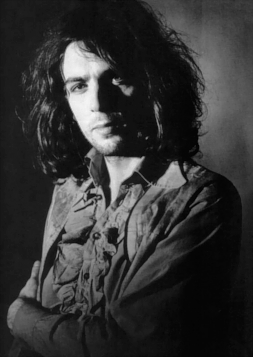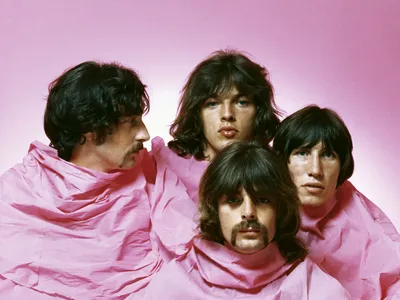News
Who Is Pink Floyd Frontman?
With over 250 million albums sold, Pink Floyd’s groundbreaking music and live performances have cemented their status as one of history’s most seminal bands. However, unlike many groups with a clearly defined frontperson, Pink Floyd’s singing and visual representation duties have been more fluid over the decades. This often leaves fans asking – who is the definitive frontman most synonymous with the Pink Floyd name?
Table of Contents
Who Is Pink Floyd Frontman?
Unlike many iconic rock bands with a single consistent frontperson over time, Pink Floyd actually had two key frontmen representing different musical eras:
- Syd Barrett (1965-1968)
Syd Barrett co-founded Pink Floyd in 1965 and served as lead vocalist and frontman during the band’s early psychedelic years. His creative vision defined their spacey debut album “The Piper at the Gates of Dawn.” However, Barrett’s worsening mental health led to his 1968 departure.

- David Gilmour (1968-Present)
After Barrett’s exit in 1968, guitarist David Gilmour stepped in to fill his shoes and took over as Pink Floyd’s primary vocalist and visual leader. Gilmour’s arrival and Barrett’s loss marked a turning point toward their progressive rock sound. As frontman for over 50 years now, his voice and guitar defined legendary albums like “The Dark Side of the Moon.”

So in summary, Syd Barrett embodied the early Pink Floyd era, while David Gilmour has since become the enduring face behind the band.
Who is the leader of Pink Floyd?

While Syd Barrett and David Gilmour shared singing duties, Roger Waters emerged as Pink Floyd’s primary creative force and conceptual leader starting in the late 1960s.
After original frontman Syd Barrett’s 1968 departure, bassist and songwriter Roger Waters filled the void by becoming Pink Floyd’s dominant artistic visionary. Though not the prominent lead singer, Waters took charge in dictating the overall themes, lyrics, narratives, and stage productions behind albums like “The Dark Side of the Moon” and “The Wall.”
With his imaginative direction shaping the bold sonic themes and storylines that defined Pink Floyd’s prog rock era, Roger Waters essentially served as the central organizing force and ideas man guiding the band to new heights in the 1970s-80s. His probing philosophical lyrics and piercing bass playing made him an unconventional but visionary frontman in his own right.
So while not always the face behind the microphone, Roger Waters’ conceptual leadership established him as the leading creative figure for Pink Floyd at their peak.
Roger Waters’ Peak Conceptual Leadership
Under Roger Waters’ direction in the 1970s-early 1980s, Pink Floyd ascended to new creative and commercial heights while pioneering the concept album format. Waters provided the sweeping thematic vision behind touchstone LPs like “The Dark Side of the Moon” and “The Wall” while lyrically tackling alienation, corruption, war, and human emotional struggles. His probing words, resonant vocals, and bass formed the backbone to the band’s magnum opuses of the era. With its explorations of isolation and societal pressures, the celebrated rock opera “The Wall” exemplified Waters’ imaginative staging and songwriting capabilities at their peak. However, his increased control ultimately drove divisions.
Gilmour Assumes Frontman Duties
After the turbulent creation of 1983’s “The Final Cut” album hinting at a growing rift, Roger Waters departed Pink Floyd in 1985 citing irreconcilable creative differences. With his exit, guitarist and secondary vocalist David Gilmour inherited the mantle as band leader and frontman. Though known for his virtuosic blues guitar heroics rather than overt leadership, Gilmour smoothly stepped into the primary vocalist role while directing Pink Floyd’s sound toward slightly more accessible terrain. The resulting albums “A Momentary Lapse of Reason” in 1987 and “The Division Bell” in 1994 saw chart-topping success on the wings of Gilmour’s signature vocal and guitar style rippling into the modern era.
With Syd Barrett as the free-spirited original, Roger Waters leading their conceptual prime, and David Gilmour helming for the long haul, the Pink Floyd frontman role proved fluid yet pivotal over the band’s changes. From psychedelic soul to prog masterworks, the lack of singular figurehead let Floyd continually evolve and thrive into legend by committee.




